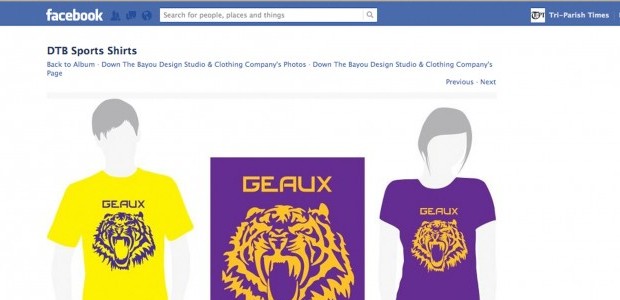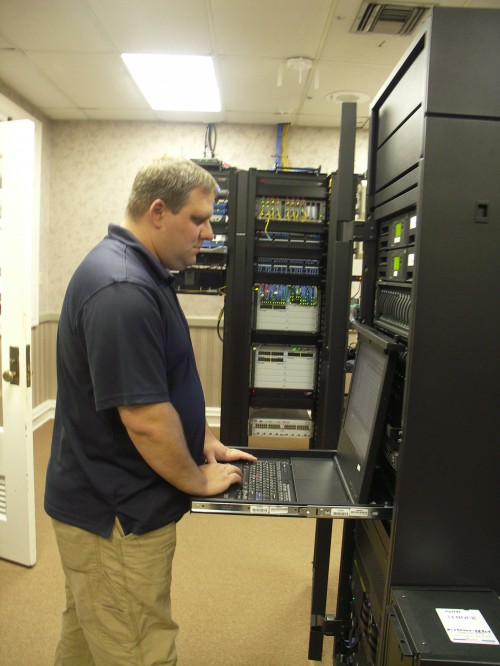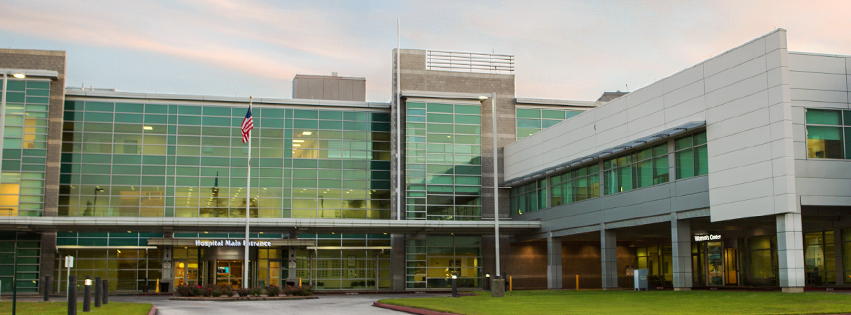
Social Media 101: Businesses using Facebook, Twitter to build customer base
July 18, 2012Can you hear me now? Likely not if you are in Kraemer
July 18, 2012Losing files for reports, contracts, invoices and charts can devastate a business. Governments could shut down if their records are lost. When it is family photos, music files, correspondence or personal finance ledgers that are lost, it is at least gut wrenching.
The most common piece of advice computer experts give customers is to backup files. In turn, the fastest growing segment of the information technology industry has become the backup business.
Overall industry statistics vary. However, some online backup services have calculated their own surveys.
Online backup company Data Vault Corp. posts data proclaiming that only 1-in-6 companies have adequate recovery plans in case of disaster. Additionally, the backup provider notes that 1-in-4 computers regularly lose content due to hackers, viruses, blackouts or electrical failure.
Carbonite, another online backup provider, claims that every computer user has a 1-in-3 chance of losing data from a personal computer.
Consumers are often confused by technology and how backup services work, said Zak Karsan, vice president of business development with third-party backup provider VaultLogix LLC.
The VaultLogix executive said reliable online backup services, also known as off-site providers, assist clients in setting up programs where they can back-up data and upload it to a system away from their property once or multiple times a day.
Karsan said backup companies do not disclose their physical locations to people other than clients for security reasons.
“We have a piece of software that sits on the network and you install the software one place on the network,” Karsan said. He explained that companies or individuals basically tell that software what data they want to backup and when. The data is encrypted to the customer’s specifications and uploaded to the backup facilities.
Online backup software can designate an entire amount of data after an initial upload is made. “The first backup is generally the biggest one,” Karsan said. “That is when you are taking everything one time.”
A variety of products and services are on the market for both Apple- and Windows-based computers. Commercial industry, banks, hospitals, non-profit organizations and even governments have taken to regularly uploading information to locations away from their regular places of business.
Individuals should examine their needs and weigh if an online backup meets their requirements, or if products like thumb drives or external hard drives would prove more manageable.
It all starts with what the industry calls a seed backup, meaning an initial upload of all documents. Once that seed is established, changes in data can be added with the computer recognizing block changes and adjusting the backed-up data in multiple ways.
“Online backup lends itself to security,” Karsan said. “With various regulatory compliance scenarios and environments data has got to be secure, meaning it has to be encrypted and protected so, if it falls into the wrong hands, there is no way to get that information.”
Thibodaux-based Robert’s Computers owner Robert Jorrklund said when it comes to individuals, some data can be recovered by way of computer repair while other information cannot. He also offers a backup service for customers, which involves manual downloads of copies and storage in a safe place.
“As far as general recovery goes, when I have a highly-infected system I tell the client, ‘I can backup photos and documents,’” Jorrklund said. “As far as programs, they will have to reinstall those after I reinstall the actual … software.”
Jorrklund said that losing material is a hard way to learn that backups are necessary. “I highly recommend that individuals have USB external hard drives and backup their hard drive daily,” he said. “Then they have [their material] if they ever have damage to their PC.”
USB hard drives cost in a range of $100 to $300 and are easily stored at home. The USB can then be taken to a third party for a second line of defense in the backup.
Third-party backups can take care of entire systems, according to Jorrklund and Karsan. “Every day they will tag updates all online,” Jorrklund said.
Costs associated with third-party backup range from $50 to $300 for individual and business systems. Some services charge based on the amount of data being saved.
Data protection experts said the best time to backup a system is during the night, when individual or office computers are not likely to be used. “Maybe about 3 a.m. so that by 7 a.m. or 8 a.m. it is all done,” Jorrklund said.
Time needed to backup systems depends on quantity of material to be copied. Once a complete system has undergone backup, changes alone will require the protective process after that. An advantage with some backup services is they are automated and will automatically perform backups at the same designated time.
Individuals and businesses are not the only ones faced with backing up files. Governments require constant updating with backups and utilize several layers of security to make sure information is protected.
“Having multiple copies of your data is very important,” said Terrebonne Parish Information Technology Manager Ben Smith. “We have a central location where we store data every night. Then, in the morning, we take it to an off-site location.”
About every other month Terrebonne Parish Consolidated Government IT officials, like most specialists of large operations, need to draw something from backups. That usually occurs when data is over-written or accidentally deleted. It is no problem as long as the material has been properly stored.
Terrebonne Parish Network Administrator Brian Rodrigue Jr. is responsible for making sure two terabytes of data is backed-up nightly, Monday through Friday. “One terabyte is 1,000 gigabytes,” Rodrigue said for perspective.
Jorrklund said for individual and small businesses, a USB hard drive should not contain more than two months of information. After that the files should be taken to a third party for backup.
Online backup systems connected through the Internet are convenient for many consumers. “What I don’t like about it is that it is online and it’s over there so your sensitive material is not in your hand,” Jorrklund said. “I don’t like that. I’d rather have an external hard drive than get third-party software to back it up.”
Karsan said his and other reputable backup services allow consumers to have a master of their files and the connecting software, in addition to what his company stores for safe keeping.
“You can keep a copy locally, back it up local and send it outside,” Karsan said. “That is one of the features about our solutions. We don’t just take your data off site, but allow you to keep a copy locally and back it up to our software. Then you have another copy because we backup our facility to another facility.”
“If you are not happy with a third-party backup, you can usually shop around and find a better one,” Jorrklund said.
Karsan said his client base is primarily businesses, government and medical facilities. “There are a lot of backup solutions out there,” he said. “There are limitations on consumer solutions. It still makes sense for [individuals] to use offsite. It is more secure. If the house burns down, your data is in a different location.”
“People who want to keep pictures or documents should at least back them up to a compact disk,” Jorrklund said. “Anything in documents is easy to backup. You also want to backup the registry and user identification because that information threads to the programs.”
Jorrklund said selecting a third-party backup source is dependent on trust.
“You are dealing with a lot of sensitive material,” he said. “I just check the files and make sure they are there. I don’t look inside.”
“There are more and more backup companies out there,” Karsan said. “The way the world is going is to move to an online backup. People want to automate the backup process, secure data and restore data quickly.”
Terrebonne Parish Network Administrator Brian Rodrigue Jr. performs an encrypted backup of two terabytes (2,000 gigabytes) of government data nightly and transfers that information to an undisclosed, off-site location for safekeeping.













